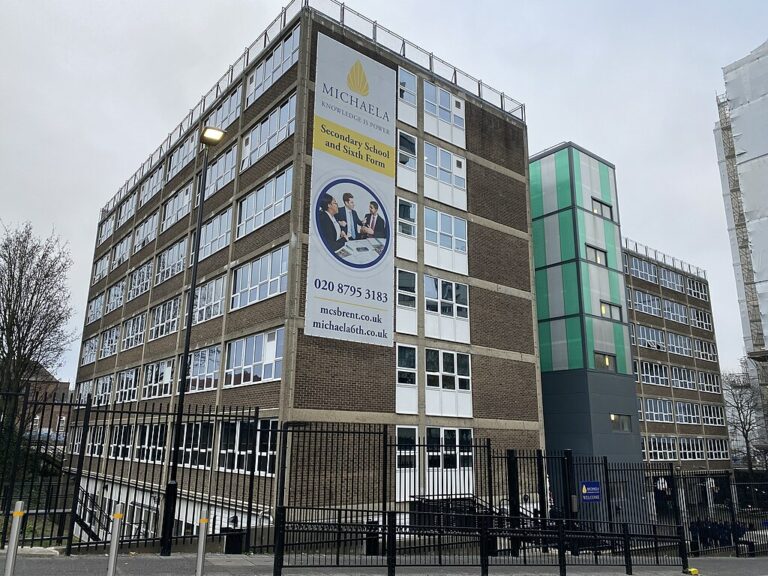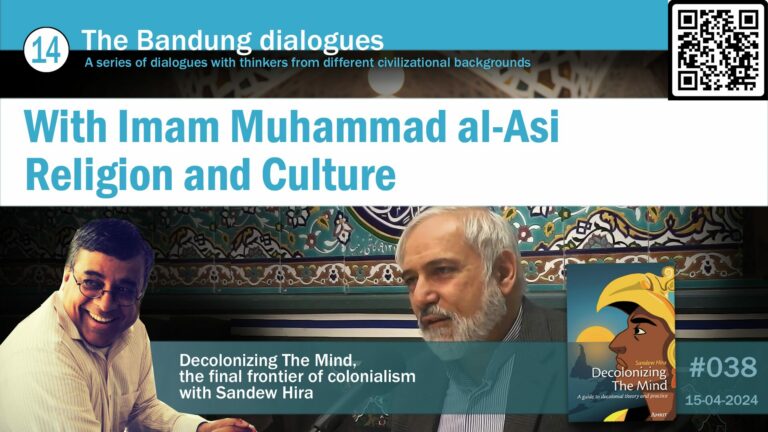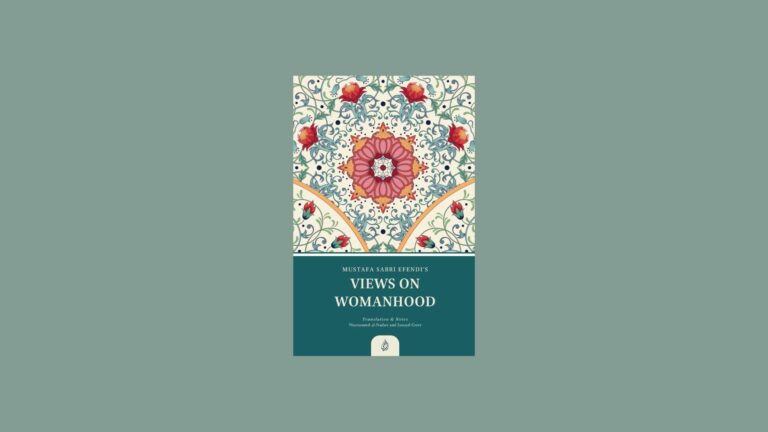————————————————–
Islamic Human Rights Commission
————————————————–
28th January 2004
Briefing: Anti-Terrorism, Crime and Security Act 2001
Following the events of 11th September 2001, the UK government hastily rushed new anti-terrorism legislation through parliament. The Anti-Terrorism, Crime and Security Act 2001 (ATCSA) was passed by parliament on 14 December 2001. The Act confers greater powers on law enforcement authorities to counter terrorism but severely limits civil liberties and human rights.
1. Powers
2. Implications for Human Right
3. Implementation
4. Conditions of Imprisonment
5. Appeal Procedure
6. Conclusion
1. Powers
The most controversial element of the Act is Part 4, which relates to immigration and asylum. The UK Home Secretary is empowered under Part 4 to certify any foreign national as a “suspected international terrorist” if he “reasonably (a) believes that the person’s presence in the United Kingdom is a risk to national security, and (b) suspects that the person is a terrorist”. Such a certification permits the Home Secretary to detain that person without charge, by categorizing him or her as someone that the UK intends to deport or to extradite, even where it is not actually possible to deport or extradite the person on the grounds that he or she would face torture if removed(i) . The ultimate effect of the measure is to permit the indefinite detention without charge of foreign nationals.
2. Implications for Human Rights
Such a draconian measure has a severe effect on human rights and civil liberties. In order for such powers to be implemented, it is necessary for the UK government to derogate from (basically opt out of) Article 5(1)(f) of the European Convention on Human Rights, which it has both signed and ratified. Article 5(1)(f) protects a person’s right to liberty and the security of the person. The UK government can derogate from its obligations under Article 5(1)(f) by declaring a state of emergency as required by Article 15. Derogations under Article 15 of the ECHR require that there is a public emergency threatening the life of the nation; that the measures are strictly required by the exigencies of the situation and that the measures are not inconsistent with other obligations under international law. The UK derogated from Article 5(1)(f) on18th December 2001.
The UK government has argued that a state of emergency threatening the life of the nation exists, and this is because of foreign nationals present in the UK who “are suspected of being concerned in the commission, preparation, or instigation of acts of international terrorism… and who are a threat to the security of the United Kingdom”(ii) . The UK bases its argument on the United Nations Security Council’s recognition of the September 11 attacks as a threat to international peace and security, and on its resolution 1373 requiring all States to take measures to prevent the commission of terrorist attacks.
However, it is debatable whether a state of emergency does exist which threatens the life of the nation, particularly in light of the fact that none of the other 43 European signatories have felt the need to declare a state of emergency. It is furthermore questionable whether the measures of internment are strictly proportional to the exigencies required by the situation. The government must show that there is a real need for such measures, particularly in light of the fact that it has not been subject to any terrorist activities linked to September 11. Furthermore, it is difficult to imagine that these people are truly a threat to international peace when the UK itself offers them the option to voluntarily leave the UK for a third country.
The Council of Europe’s Human Rights Commissioner has severely criticised the UK’s derogation and policy of internment stating that, ‘general appeals to an increased risk of terrorist activity post September 11th 2001 cannot, on their own, be sufficient to justify derogating from the Convention’.
In February 2002, investigators from the European Committee for the Prevention of Torture and Inhuman or Degrading Treatment or Punishment (CPT) came to the UK on a secret, emergency visit to investigate the treatment of those interned. In the February 2003 report on its visit to the United Kingdom, the CPT raised a number of concerns regarding the treatment of those detained under ATCSA and concluded that “the belief that they [the ATCSA detainees] had no means to contest the broad accusations made against them [also] was a source of considerable distress, as was the indefinite nature of detention”. The CPT also expressed concern about statements by the UK government that the ATCSA detainees can end their detention at any time by agreeing to leave the country, including by returning to their countries of origin. The CPT stressed: “The UK authorities consider that the detainees in question would be at risk of serious human rights violations, including death or torture, in case of return to their countries of origin; indeed, this is the declared reason why they cannot be removed from the United Kingdom”.
In December 2003, the Privy Council Review Committee recommended that Part 4 of the ATCSA should be replaced with a measure that \”does not require the UK to derogate from the right to liberty under the European Convention on Human Rights\”.
3. Implementation
A total of fourteen men have been detained under Part 4 of the ATCSA. Eight men were arrested in December 2001 after the Act was first passed. Another man was arrested in February 2002. Two more men were arrested and detained in April 2002. Of these eleven men, two have chosen to voluntarily leave the UK. The other nine men continue to be detained without charge. On 24 January 2003, the Home Secretary released a statement indicating that fifteen suspects had been arrested, of whom two had voluntarily left the UK(iii) .
It is noteworthy that all the individuals arrested and detained under the ATCSA have been Muslims. The detention of terrorist suspects is aimed at nationals of particular, predominantly Muslim countries which have been labeled as rogue states that harbour terrorists, as well as nationals who have sought asylum from countries e.g. Algeria which have Islamic opposition parties. Studies of current immigration practices show that despite abolishing the ‘white list’ of countries whose nationals are likely to be detained, the practice still continues. The ATCSA has only exacerbated the already discriminatory situation.
The targeting of those nationals and the disproportionate effect of the anti-terrorism measures upon them, is likely to create tension amongst the British Muslim communities who may again feel that Muslims are being intentionally subjected to adverse treatment. Already over 500 Muslims have been arrested in the UK under the Terrorism Act 2000, of which only 2 were convicted. Consequently, this measure has the potential to further damage very fragile race relations in the country.
Ultimately this measure will prove to be ineffective and will undoubtedly result in the incarceration of innocent asylum seekers who, having fled from oppression in their own homelands, only to find themselves having draconian measures imposed upon them in the ‘safe haven’ of the UK.
4. Conditions of Imprisonment
It has come to light that the detainees are being kept in brutal conditions. The conditions in which many of the suspects have been held at Belmarsh high-security prison in southeast London have been described by lawyers and Home Office medical experts as “barbaric” and as “concrete coffins”.
In 1996, the former Government chief medical officer concluded that units like Belmarsh could contribute to mental illness(iv) . The CPT’s February 2003 report identified a number of human rights violations committed during the detentions, including: initial restrictions on access to a lawyer “for up to a week or more” for “most of the detainees”; verbal abuse from guards; the absence of specific guarantees in ATCSA regarding “the right to notification of custody and to the rights of access to a lawyer and to a doctor”; the absence of work, educational and cultural activities for detainees; restrictions on the detainees’ out-of-cell time resulting from “operational requirements” that fall below the one-hour minimum and; restrictions on visits by family and friends (generally limited to one visit every two weeks). The UK government’s response rejected these criticisms.
There are also credible reports from Amnesty International that the suspects were locked up for 23 hours a day and not allowed to see daylight. They were not given access to lawyers or family on detention, while being given five days to appeal against their internment. The prisoners were additionally refused prayer facilities and have been subjected to body searches by women. They were unable to speak to their families without an approved Arabic interpreter who visited once a week.
5. Appeal Procedure
There is no immediate access to a regular court to challenge the certification, but an appeal has to be conducted through an independent judicial body, the Special Immigration and Appeals Commission (SIAC).
In July 2002, the SIAC challenged the legality of the detention of the nine men. During this and later hearings, the Home Secretary relied on secret evidence that was shown to the court and a specially appointed lawyer but which neither the detainees nor their own lawyers could see.
The SIAC judges found that there was a public emergency justifying the detention without trial but that it was unlawful and discriminatory because the new powers only concerned foreign nationals.
On the 25th October 2002, the Court of Appeal overturned the SIAC ruling and found that there was no discrimination, the detainees being unlike British nationals. British nationals who are never liable to deportation are not in an analogous situation to foreign nationals who may (at least theoretically) be deported. International law permits limited state discrimination against foreign nationals, especially in times of emergency, and the class of foreign nationals to whom the Act applied was sufficiently small that any derogation could be justified by the exigencies of the situation.
Leave to appeal to the House of Lords was not granted, so application for leave must now be made by the detainees directly to the House of Lords. If this is also unsuccessful, the detainees may bring their case before the European Court of Human Rights in Strasbourg.
6. Conclusion
The draconian powers awarded to the police under Part 4 of the Anti-Terrorism Crime and Security Act have been criticised and condemned by human rights groups, members of the judiciary and the Bar, and the Archbishop of Canterbury. The Privy Council Review Committee has recently recommended that these powers, which allow foreign nationals to be detained indefinitely, be abolished immediately. It is unacceptable that the UK feels it can, at whim, retract fundamental human rights that have been recognized by customary norms of international law. The indefinite detention of any human being without charge is completely abhorrent to the values and principles held by any civilised nation. The British government must comply with the review committee’s findings and remove these powers immediately. Additionally the larger concerns regarding ATCSA must be addressed.
- ATCA 2001, S.23(1)
- Special Immigration and Appeals Commission Act 1997, Section 5(1)
- 10 Downing Street, “Press Release: Government seeks to extend powers of detention”, 24 January 2003, at http://www.number-10.go.uk/output/Page1120.asp
- The Observer, January 20, 2002, ‘UK terror detentions barbaric’, Bright, M., Burke, J., Wazir, B.
——————————————————————–
Islamic Human Rights Commission
PO Box 598
Wembley
HA9 7XH
United Kingdom
Telephone (+44) 20 8904 4222
Fax (+44) 20 8904 5183
Email: info@ihrc.org
Web: www.ihrc.org






